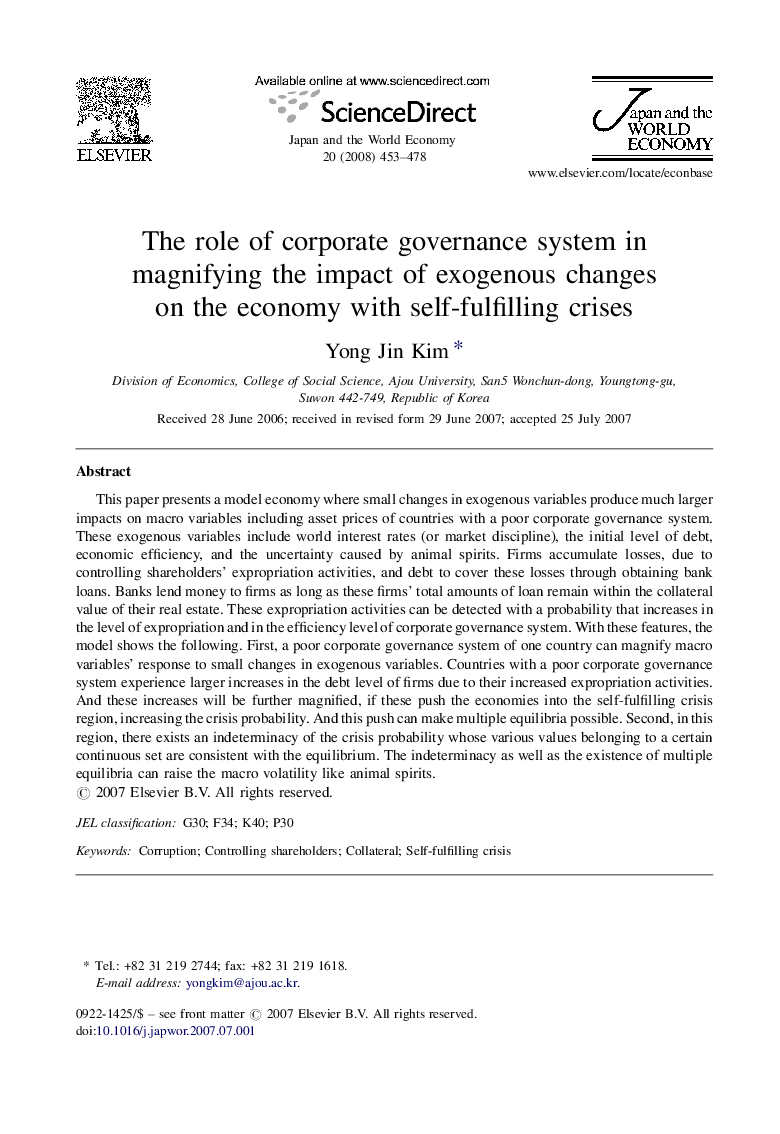| Article ID | Journal | Published Year | Pages | File Type |
|---|---|---|---|---|
| 5086210 | Japan and the World Economy | 2008 | 26 Pages |
Abstract
This paper presents a model economy where small changes in exogenous variables produce much larger impacts on macro variables including asset prices of countries with a poor corporate governance system. These exogenous variables include world interest rates (or market discipline), the initial level of debt, economic efficiency, and the uncertainty caused by animal spirits. Firms accumulate losses, due to controlling shareholders' expropriation activities, and debt to cover these losses through obtaining bank loans. Banks lend money to firms as long as these firms' total amounts of loan remain within the collateral value of their real estate. These expropriation activities can be detected with a probability that increases in the level of expropriation and in the efficiency level of corporate governance system. With these features, the model shows the following. First, a poor corporate governance system of one country can magnify macro variables' response to small changes in exogenous variables. Countries with a poor corporate governance system experience larger increases in the debt level of firms due to their increased expropriation activities. And these increases will be further magnified, if these push the economies into the self-fulfilling crisis region, increasing the crisis probability. And this push can make multiple equilibria possible. Second, in this region, there exists an indeterminacy of the crisis probability whose various values belonging to a certain continuous set are consistent with the equilibrium. The indeterminacy as well as the existence of multiple equilibria can raise the macro volatility like animal spirits.
Related Topics
Social Sciences and Humanities
Economics, Econometrics and Finance
Economics and Econometrics
Authors
Yong Jin Kim,
